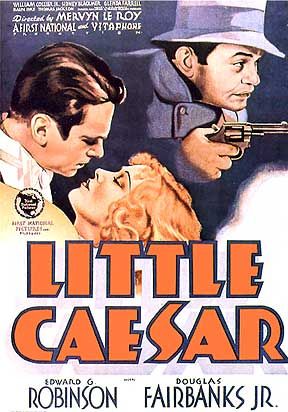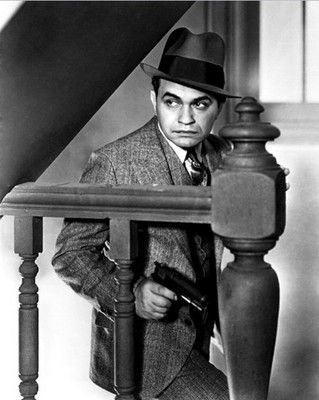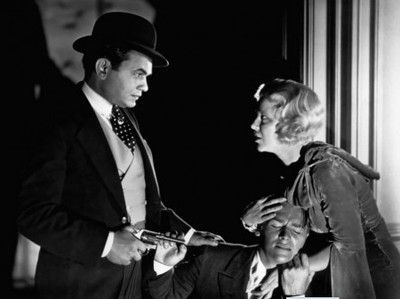
Little Caesar
1930
Director: Mervyn LeRoy
Starring: Edward G. Robinson, Douglas Fairbanks Jr.
One of the earliest gangster films, Little Caesar is more than just a movie for those interested in the history of cinema. Propelled by a captivating performance by Edward G. Robinson, Little Caesar still tells a gripping story.
Caesar Enrico Bandello (Robinson) is a small time crook who dreams of making it in the big time. His partner Joe (Fairbanks), though, dreams of getting out and going straight (as a dancer, of all things). While Rico gets introduced to the local gangs and rises through the ranks, Joe is trying to make it as an entertainer despite Rico’s best efforts to keep Joe in the gang. Rico’s rise is meteoric due to his utter ruthlessness and crazed bloodlust, which, of course, can only lead to an equally meteoric downfall.

While the characters in the movie aren’t exactly realistic, they are so far over the top that they are tremendous fun. Rico’s first boss Vettori (Stanley Fields) becomes a bumbling mess when Rico moves to take over the gang, which is actually pretty fun to watch. Each member of Vettori’s – and then Rico’s – gang is straight out of Looney Tune cartoon. Edward G. Robinson is fantastic as Rico, playing the character with full tilt bloodlust and ambition in every single scene. When he isn’t violently planning his next movie, he is primping and preening. Money, suits, jewelry, furniture – his eye is constantly roving, wanting more. Robinson is never in park – he’s always on the go. In one of the final scenes, after Rico’s downfall, he’s positively animalistic as he desperately seeks to reclaim his power. Second only to Robinson’s portrayal of Rico is Thomas Jackson’s part as Flaherty, the shrewd police detective who wearily but sarcastically pursues Rico to the end. He plays the part with such relish, it brought a smile to my face.
The direction has moments of inventiveness. When Rico is introduced to his first “big time” gang, the camera takes on a first-person point of view and becomes suddenly jittery as it quickly moves from face to face, as if it is Rico overcome with excitement. Certain key shots throughout the film go in and out of focus, as if in the head of a crazy person. A heist is shown in montage, highlighting the rush and adrenaline of the moment. A nice framing of Rico’s reflection as he tries on a tuxedo is very clever indeed, making it indeed look as though Rico has had his portrait painted and it’s hanging on the wall.

While the film certainly feels a little dated – it’s definitely an early talkie – there is a lot to be said about a story that deals with a person (or company, or bank, or shareholders) whose greed overinflates them beyond their capacity. Originally made as an allegorical response to The Great Depression, Little Caesar still, sadly enough, works as an allegory today.
Arbitrary Rating: 7/10
Never thought of that allegory, but you may be on to something.
ReplyDeleteI saw this as a gangster cliché, except it is so early it was not a cliché at the time. Now that you mention it it is actually funny that it is so exagerated.
That's the thing: can a movie still be a cliche if it was the very first? Probably not.
DeleteThis is a film almost impossible to appreciate without context. If you watch it from the perspective of the time, it's far, far better than if you watch it with today's jaded sensibilities.
ReplyDeleteThat is a very, very good point.
Delete